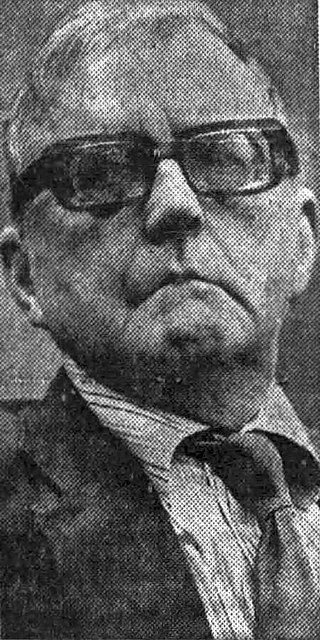
The State Anthem of the Estonian Soviet Socialist Republic was the anthem of Estonia from 1945 to 1990 when it was a part of the Soviet Union.
The Soviet Union's various constituent republics each had their own anthem.

Erkki-Sven Tüür is an Estonian composer.

Gustav Ernesaks was an Estonian composer and a choir conductor.
The International Rostrum of Composers (IRC) is an annual forum organized by the International Music Council that offers broadcasting representatives the opportunity to exchange and publicize pieces of contemporary classical music. It is funded by contributions from participating national radio networks.
The Estonian Academy of Music and Theatre began as a mixed choir of the Estonia Society Musical Department (EMD) on the eve of World War I. The assembly of the Estonia Society created the Tallinn Higher Music School on November 17, 1918. The opening ceremony took place on September 28, 1919. In 1923 the educational institution was renamed the Tallinn Conservatoire. In 1938 the State Drama School was opened. In 1993 the school was renamed the Estonian Academy of Music. In 1995 the Drama Faculty was renamed the Higher Theatre School.
"Mu isamaa on minu arm" is an Estonian poem by Lydia Koidula. The poem was first set to music for the first Estonian Song Festival in 1869 by Aleksander Kunileid.
Elze Janovna Paemurru, known as Els Aarne, was an Estonian composer, pianist and pedagogue during the Soviet Union.
Kersti Merilaas was an Estonian poet and translator. In addition, she wrote poems and prose for children and plays.
Veronika Portsmuth is an Estonian conductor and singer.

Erki Pehk is an Estonian conductor and artistic director of opera music festival PromFest.

Käsmu is a village in Haljala Parish, Lääne-Viru County, in northern Estonia, on the territory of Lahemaa National Park. It's located northwest of Võsu, on the Käsmu Peninsula in the Gulf of Finland, surrounded by the Eru Bay to the west and the Käsmu Bay to the east.

Juhan Simm was an Estonian composer, conductor, and choir director.
The Governor was the leader of a county (maakond) in Estonia. Here is the list of governors of Estonian counties.

Jaan (Joann) Hargel was an Estonian conductor, music teacher, oboe and flute player.
100 great Estonians of the 20th century is a list of notable Estonians compiled in 1999 by Eesti Entsüklopeediakirjastus, Eesti Päevaleht, National Library of Estonia, Radio Kuku, and TV3.

Ain Lutsepp is an Estonian actor and politician.

Ants Soots is an Estonian conductor.

Loyalty, Op. 136 is a cycle of eight ballads for men's chorus a capella composed by Dmitri Shostakovich based upon texts by Yevgeny Dolmatovsky. It was composed in commemoration of the centennial of Vladimir Lenin's birth in 1970.










